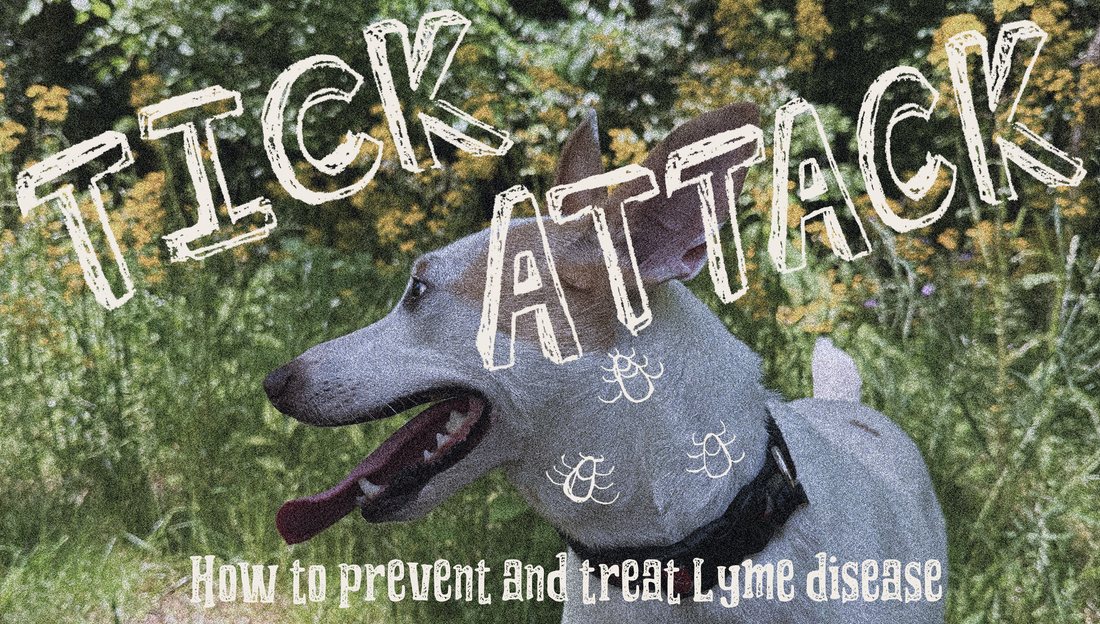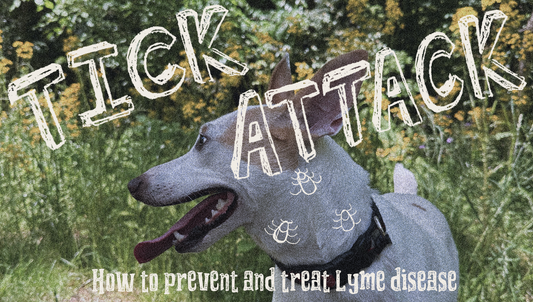Today marks the first day of August, and you know what that means… the height of tick season! One of the ticks you should really look out for is the black-legged tick. These are the ticks that carry the bacteria, borrelia burgdorferi, which is what causes Lyme disease. These tiny menaces are reddish with a solid black, dorsal shield and long, thin mouths. It’s very important to get you or your dog checked out if you find them.
Let's talk about how you can spot the signs of Lyme disease and learn how to prevent and treat it. Some symptoms to look for could include the inability to walk or limping, swollen lymph nodes, joint swelling, fatigue, and loss of appetite. These symptoms sometimes don’t occur for two to five months, or they may not show up at all, so routine check ups are crucial. Megan, a Fetch Boy team member, discovered her dog had Lyme disease at a routine vet check-up. Her dog, Draven didn’t show obvious symptoms, but his blood work tested positive for the disease.
There are ways to counter this tick attack when it happens. Your vet may prescribe an antibiotic, most likely doxycycline, though other options are available. Treatment lasts four weeks but in some cases, could last longer because antibiotics don’t always eliminate the infection completely. If your dog is in pain or uncomfortable, the vet could also prescribe an anti-inflammatory. Improvement can be seen in acute inflammation within three to five days of treatment. In Draven’s case, Megan was provided antibiotics, but not a full understanding that Lyme disease is treatable, not curable. “I wish I’d been more careful about where I took him for walks,” said Megan.
Let’s get to preventing these tiny threats from getting to your pooch.
- Avoid heavily wooded and grassy areas
- Frequent checks to remove ticks
- Daily checks in August and September when ticks are most active
- Tick prevention medicine and/or the Lyme vaccine (discuss with doctor)
Prevention and education about Lyme disease is a must. “I didn’t know it was incurable and that symptoms can only be managed,” said Megan. Our four-legged friends are precious to us, so be sure to be on the lookout for these miniscule monsters, for they are on the attack.





